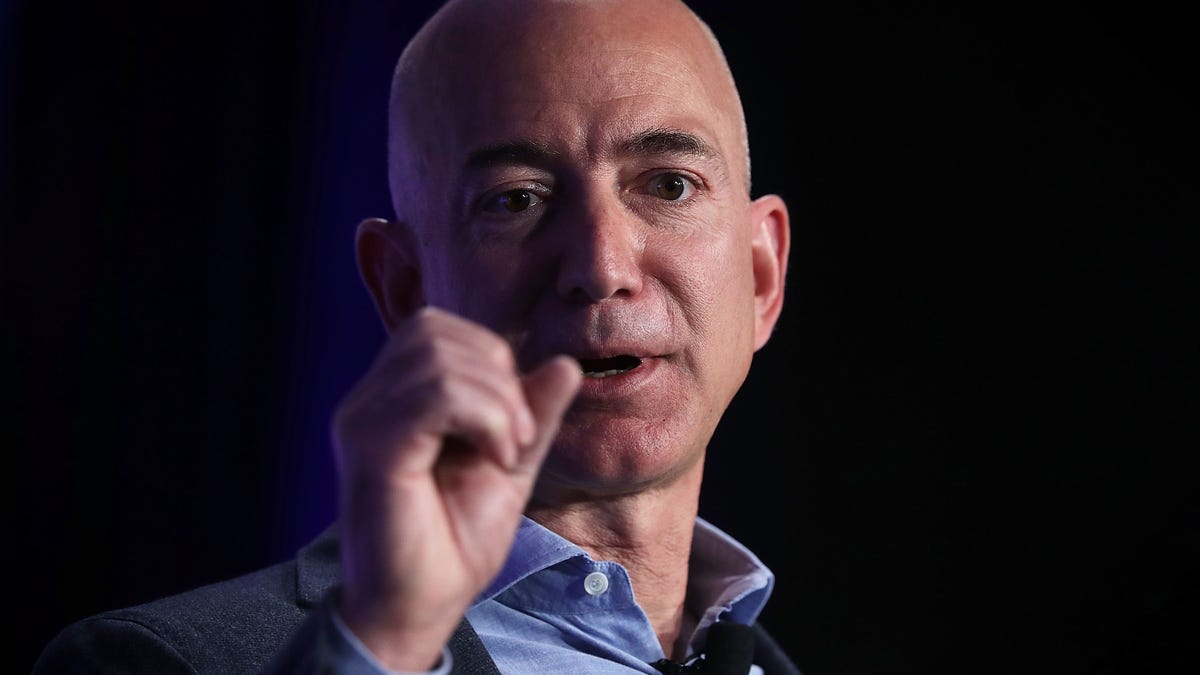Amazon’s dominance comes at a high cost
In the latest quarter, operating costs surge again, as the e-commerce titan keeps investing in future growth.

On Thursday, Amazon founder and CEO Jeff Bezos was named the world's richest person.
History has repeated itself for Amazon.
Following a series of strong quarterly results, the company has yet again shrugged off Wall Street's expectations and posted an unexpectedly low profit. The clear culprit was -- yet again -- Amazon's penchant for shoveling billions more dollars into its businesses to amp up their growth.
In its earnings report Thursday, the company said income hit $197 million, or 40 cents a share, in the second quarter, down 77 percent from last year's $857 million, or $1.78 a share. Analysts were hoping for $1.42 a share.
The drop in profit was perhaps even more surprising because Amazon's revenue keeps surging. Sales reached $38 billion, up 25 percent from a year ago and outpacing Wall Street's predictions, according to Yahoo Finance.
Investors weren't all that rattled by the weaker profit, sending Amazon's shares down just 2 percent after hours. Neither was Amazon finance chief Brian Olsavsky on a call with reporters Thursday.
"We've been very transparent that we are continuing to invest in businesses that have … four great characteristics: Customers love them, they can grow to be large, they have strong financial returns, and they are durable and can last for decades," he said, mentioning higher spending on Amazon's video service, its Echo devices and its warehouses.
The latest quarter illustrates how Amazon's position as the world's biggest e-commerce company continues to come at a massive cost. The Seattle retailer needs to spend boatloads of cash to maintain its huge growth and stay one step ahead of the competition. These investments may prove to be great for customers, as they reap the benefits of Amazon's faster fulfillment network, increased product inventory and expanded video libraries.
But central questions about Amazon have persisted for years: Is all that investing sustainable? And are the company's bets on different businesses worth the trouble?
So far, Amazon's strategy seems to be working quite well for the company. It grows much faster than competing retailers, who've been struggling to keep up. To top off Amazon's recent strength, on Thursday founder and CEO Jeff Bezos was even briefly crowned the world's richest person by both Forbes and Bloomberg, after Amazon's stock rose ahead of the earnings report. Bezos is now worth roughly $90 billion, narrowly outpacing Bill Gates' fortune today.
For the latest quarter, Amazon's operating expenses jumped 28 percent, to $37.3 billion. Employee headcount rose 42 percent from a year ago, to 382,400 positions, and shipping costs increased 36 percent.
Amazon said it may post a loss in its typically slower third quarter, even as sales should keep rising at 20 percent or more.
CNET Magazine: Check out a sampling of the stories you'll find in CNET's newsstand edition.
It's Complicated: This is dating in the age of apps. Having fun yet? These stories get to the heart of the matter.

